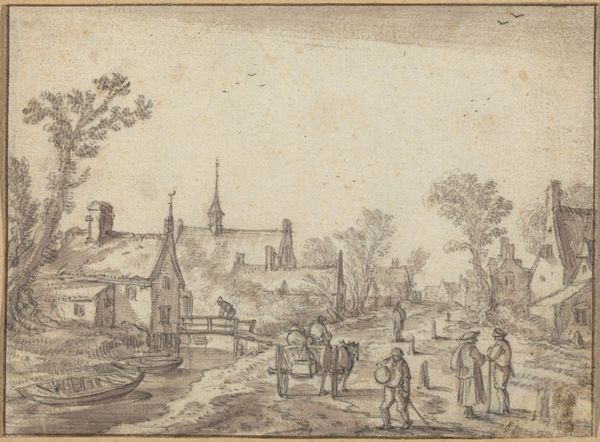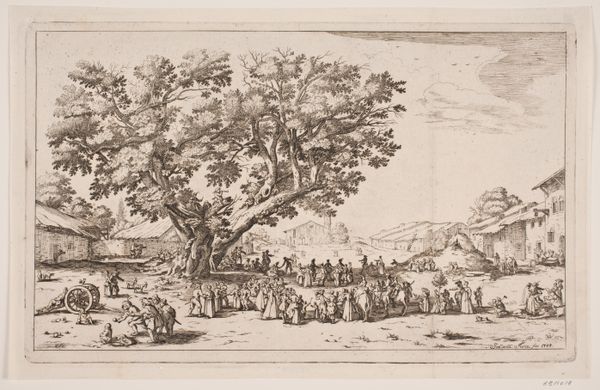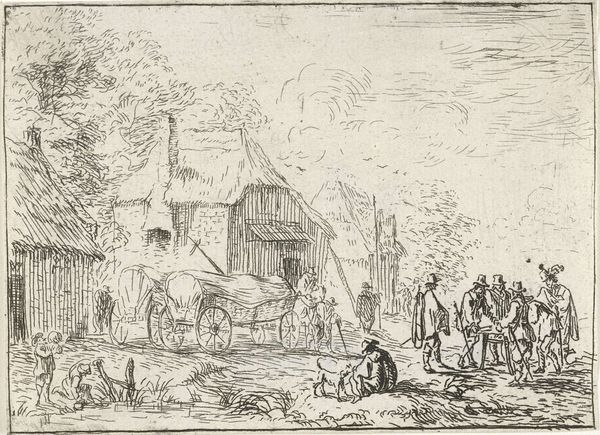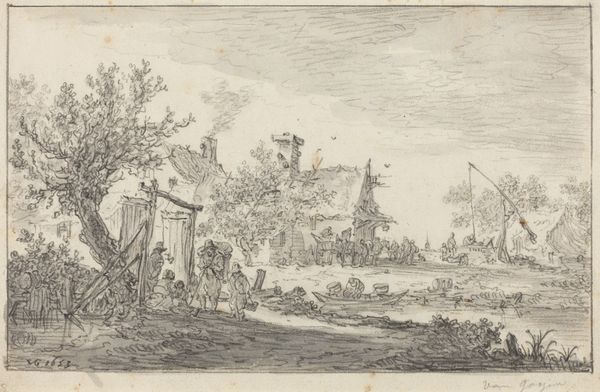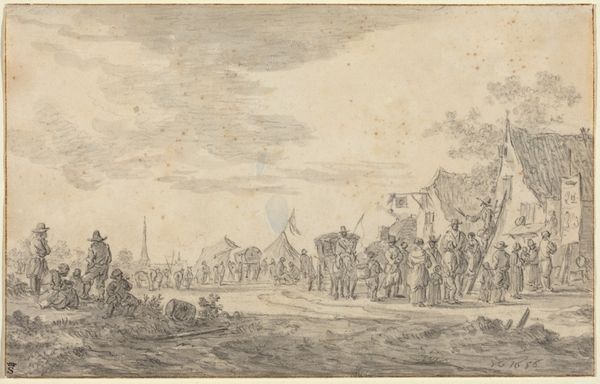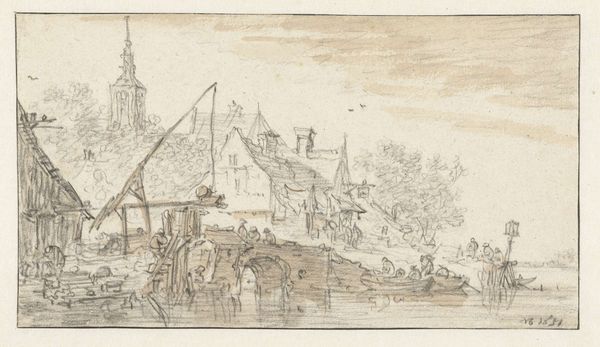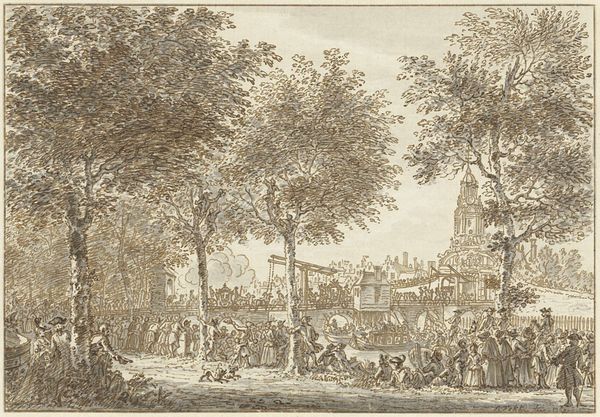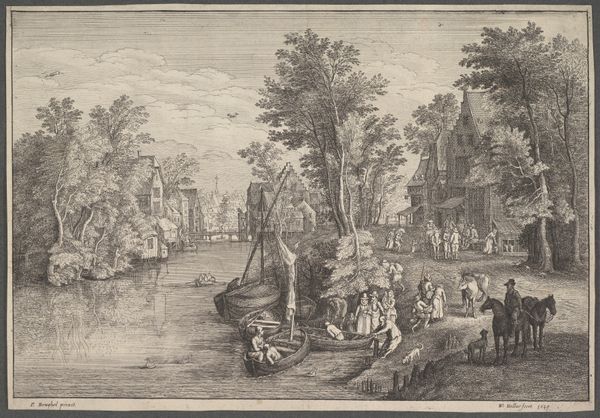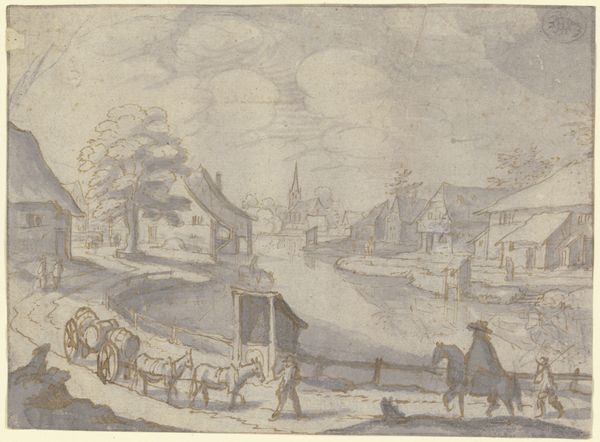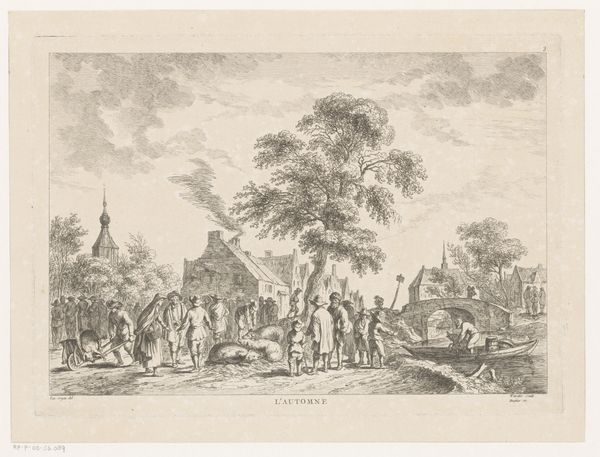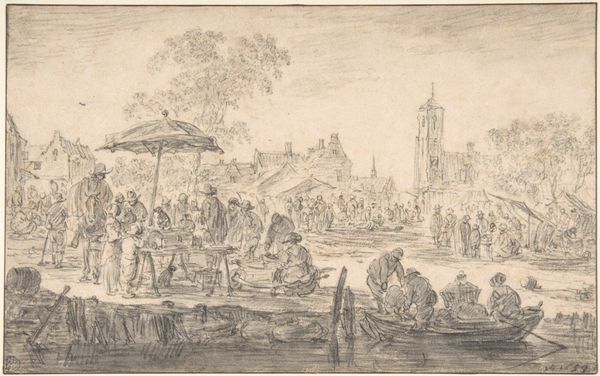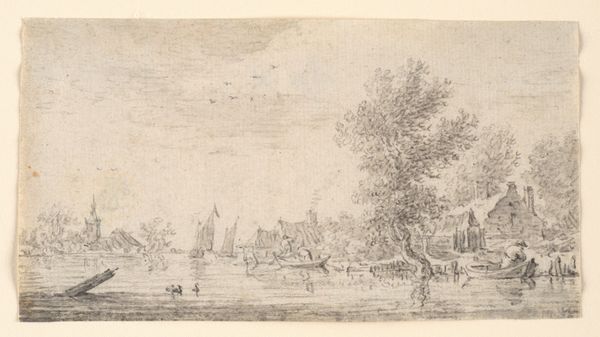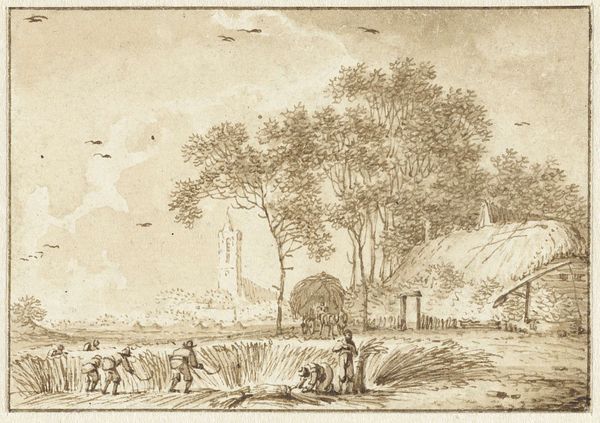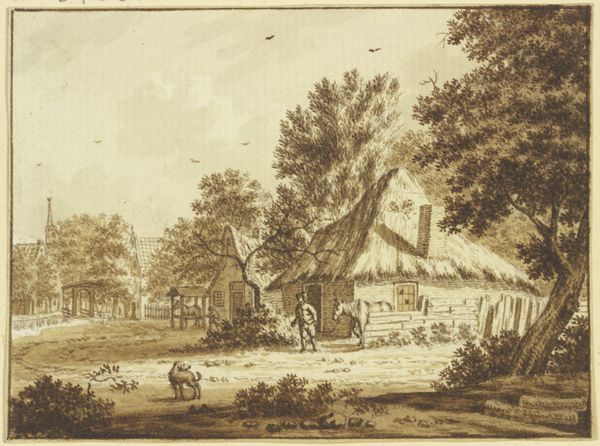
drawing, print, ink
#
drawing
#
ink drawing
#
ink painting
#
dutch-golden-age
# print
#
landscape
#
ink
#
cityscape
Dimensions: sheet: 7 11/16 x 11 7/16 in. (19.5 x 29 cm)
Copyright: Public Domain
Editor: This is Isaac van Ostade’s "Distribution of the Catch by Night," created sometime between 1635 and 1649 using ink. It gives off a casual but somewhat ominous feel with its shadowy monochrome and busy composition. How do you interpret the visual arrangement of the drawing? Curator: Note the masterful application of washes which establish spatial recession. The architecture to the left exhibits a tangible presence created by strong value contrasts; conversely, forms recede towards the picture plane's center as line weights diminish, delineating atmospheric depth and recession. Does this strategic control of tonal value guide the viewer's gaze into the composition, effectively controlling their reading of the visual space? Editor: Yes, it's quite subtle but noticeable. I hadn't considered how deliberate those washes are. The lines seem rougher near the people, however. Curator: Consider those figures—do their placements augment the central convergence established by architecture and depth? The carefully orchestrated chaos of human activity, meticulously drawn yet blurred enough to remain impressionistic, is counterbalanced with architectural exactitude in the background and creates a semiotic tension. Editor: I see what you mean. The crisp architecture and hazy human activity form a stark contrast. This tension keeps the composition dynamic and engaging. Curator: Precisely. And the dynamism in tandem with carefully graded washes offers much insight. Editor: I now have a stronger understanding of how the individual formal choices influence the overall experience. Curator: Indeed, a closer examination of form offers avenues to interpret meaning.
Comments
No comments
Be the first to comment and join the conversation on the ultimate creative platform.
